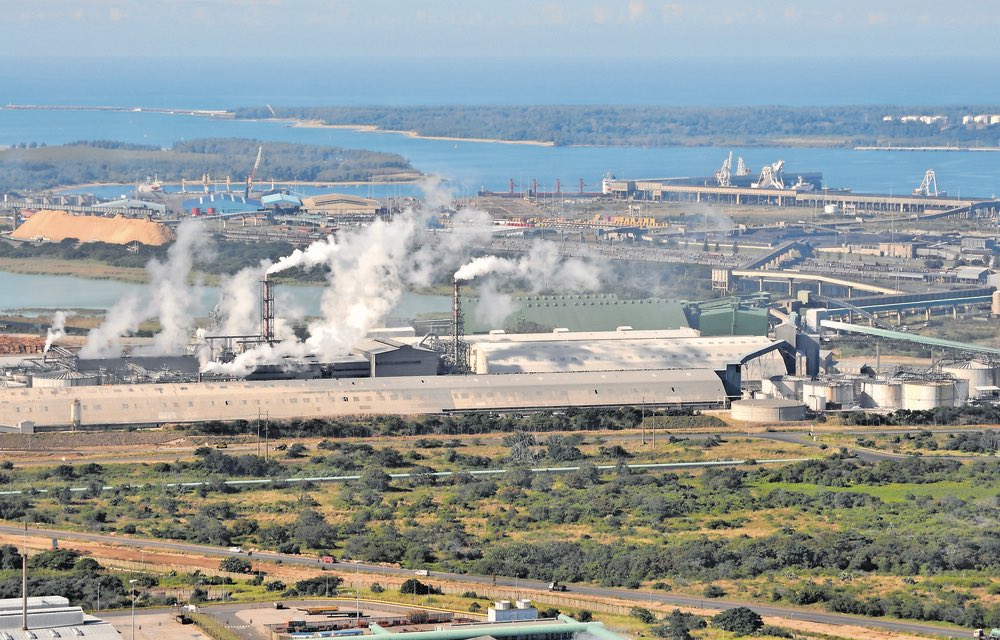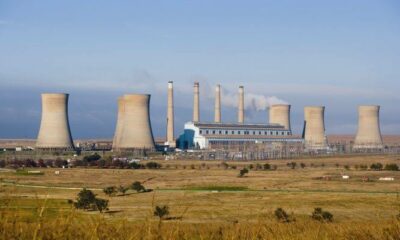Business
Court Ruling Halts Eskom’s 3,000MW Richards Bay Gas Plant Over Public Consultation Failures

South Africa’s power crisis takes another twist as judges demand public voices be heard
South Africa’s hopes for a new 3,000-megawatt gas-fired power plant in Richards Bay hit a major roadblock this week. On Wednesday, the Supreme Court of Appeal threw out Eskom’s permit to build the controversial project, ruling that the state utility had failed in a basic but crucial step: listening to the people.
The judges didn’t mince words. They called the permit “a nullity” and made it clear that Eskom would need to start the application process all over again, this time with proper public consultation.
The energy crunch that won’t quit
The setback comes at a time when South Africans are still living under the shadow of rolling blackouts. The Richards Bay project was meant to be part of government’s strategy to wean the country off coal while easing the load-shedding crisis. A gas-fired station, alongside the city’s upcoming liquefied natural gas (LNG) import terminal, was pitched as a quicker fix compared to building new renewables at scale.
But now, that plan is in limbo. And with the grid still fragile, the ruling adds more uncertainty to when or if, Eskom can bring new capacity online.
Why the court said no
The judgment echoes earlier cases where energy projects were stopped in their tracks for bypassing communities. South Africa’s courts have become a consistent check on companies and even government, when projects risk long-term environmental or social damage without proper consultation.
In this case, environmental groups argued that Eskom ignored those living closest to its planned site. They pointed to decades of pollution in KwaZulu-Natal’s industrial hubs, where poor and working-class communities often carry the heaviest health burden.
Desmond D’Sa, a veteran activist from the South Durban Community Environmental Alliance and one of the applicants in the case, said the ruling was overdue. “Eskom for too long as a state company has gotten away with injustices. People living alongside its facilities continue to suffer from high levels of pollution,” he said in a statement.
What this means for Richards Bay and the rest of SA
For Richards Bay, the court’s decision is a double-edged sword. On the one hand, it delays potential jobs and investment tied to the power plant. On the other, it affirms residents’ right to have a real say in projects that could impact their health and environment for decades.
On social media, reactions have been split. Some South Africans cheered the ruling as a victory for environmental justice and accountability, praising the courts for upholding democracy where policy has failed. Others, exhausted by years of power cuts, slammed it as yet another blow to a country desperate for stable electricity.
Eskom and the Department of Forestry, Fisheries and the Environment declined to comment immediately after the ruling. But their silence speaks volumes.
The case highlights a deep tension in South Africa’s energy transition: how to balance the urgent need for reliable power with the equally urgent need for environmental justice. Communities living next to Eskom’s coal plants know the costs of being ignored. And now, as the state pivots to gas, they’re making sure history doesn’t repeat itself.
For now, the Richards Bay project is off the table until Eskom re-applies, this time with the public properly included. Whether that leads to faster approvals or more drawn-out legal battles remains to be seen. But one thing is clear: South Africans won’t be left out of the conversation about their energy future.
{Source: BusinessTech}
Follow Joburg ETC on Facebook, Twitter , TikTok and Instagram
For more News in Johannesburg, visit joburgetc.com



























